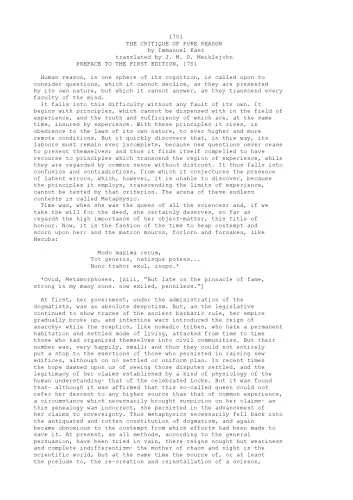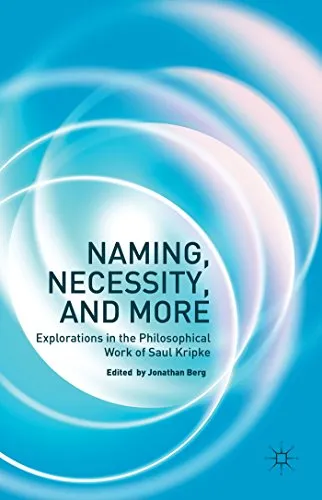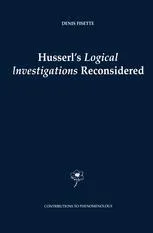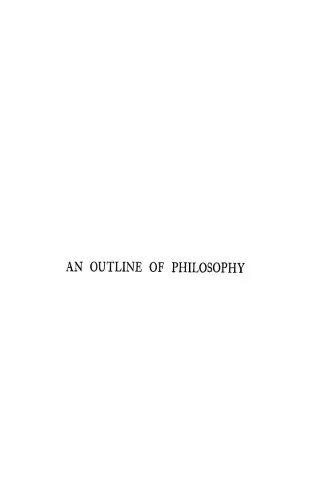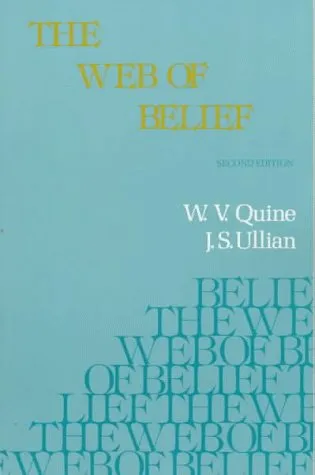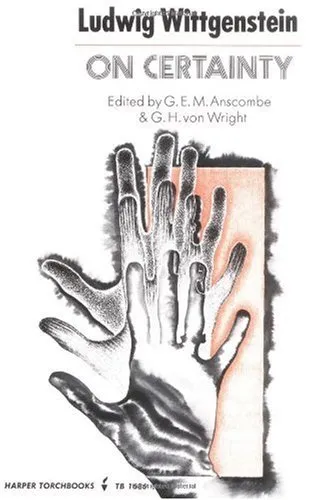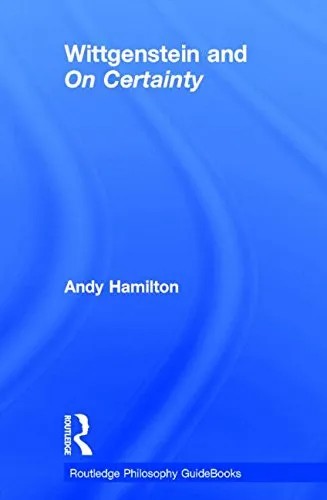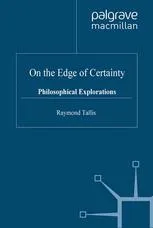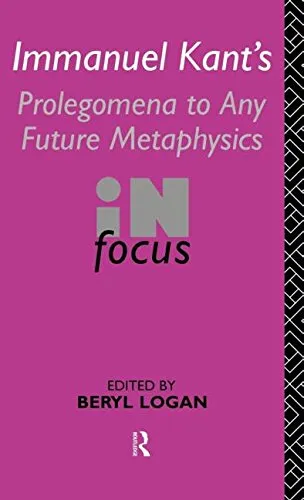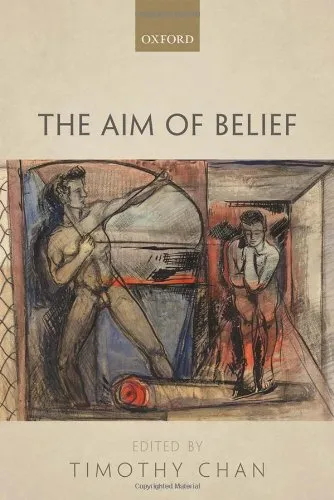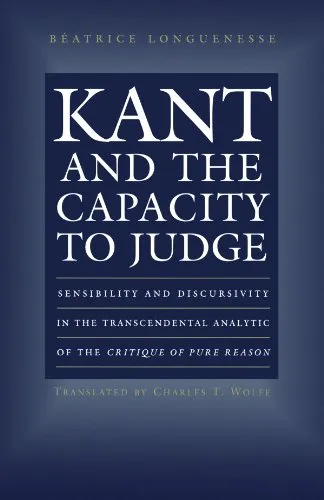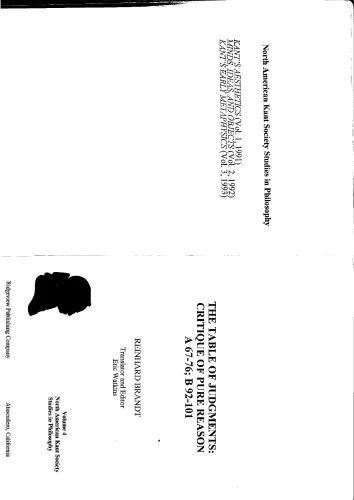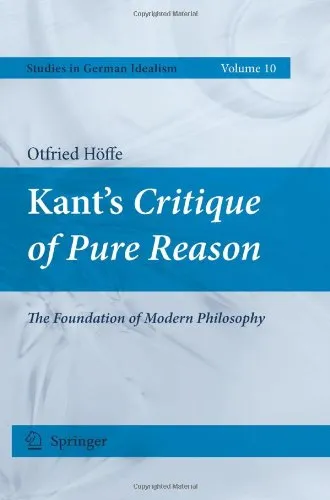Critique of Pure Reason
4.5
Reviews from our users

You Can Ask your questions from this book's AI after Login
Each download or ask from book AI costs 2 points. To earn more free points, please visit the Points Guide Page and complete some valuable actions.Related Refrences:
Introduction to 'Critique of Pure Reason'
The 'Critique of Pure Reason' by Immanuel Kant stands as one of the most influential works in the history of philosophy, offering profound insights into the nature and limits of human understanding. Published in 1781, the work tackles the complex interplay between knowledge and experience, questioning the foundations upon which human cognition is built.
Detailed Summary of the Book
The 'Critique of Pure Reason' is an ambitious endeavor to determine the capabilities and limits of human intellect. Kant seeks to resolve the conflict between rationalist and empiricist philosophies by proposing a new framework that he calls "transcendental idealism." This paradigm suggests that while our experiences shape perceptions, the structure of our mind dictates how these experiences are processed.
In the 'Critique,' Kant posits that all knowledge begins with experience but does not necessarily arise from it. He distinguishes between "a priori" knowledge, which is independent of experience, and "a posteriori" knowledge, which depends on it. Furthermore, Kant divides judgments into "analytic," which are true by virtue of their meaning, and "synthetic," which add to our knowledge. The crux of the book examines whether synthetic a priori judgments are possible, leading to new insights in metaphysics and science.
The book is structured into two main parts: the "Transcendental Aesthetic," which explores sensory experience, and the "Transcendental Logic," which consists of the "Transcendental Analytic" and the "Transcendental Dialectic." These sections collectively investigate how phenomena are perceived and understood within the mind's frameworks, such as space and time, causality, and the notion of substance.
Key Takeaways
- Transcendental Idealism: Kant introduces a groundbreaking method of understanding the relationship between the mind and reality.
- Reconciliation of Rationalism and Empiricism: By showing how the mind shapes our experiences, Kant bridges the divide between these two schools of thought.
- Limits of Human Knowledge: The work critically assesses what can be known a priori and the boundaries of metaphysical inquiry.
- Critique of Metaphysics: Kant scrutinizes traditional metaphysical concepts, limiting what can be legitimately claimed about reality.
Famous Quotes from the Book
"Thoughts without content are empty, intuitions without concepts are blind."
"Science is organized knowledge. Wisdom is organized life."
"All our knowledge begins with the senses, proceeds then to the understanding, and ends with reason."
Why This Book Matters
The 'Critique of Pure Reason' is pivotal because it challenges and reorients traditional philosophical thought, introducing critical ideas that have informed both modern philosophy and the sciences. Its exploration of metaphysics, epistemology, and the philosophy of mind has reverberated through centuries, influencing figures such as Hegel, Nietzsche, and even contemporary philosophers.
Moreover, Kant's efforts to establish a secure foundation for human knowledge redefined the inquiries into space, time, and causality, making it essential reading for those seeking to understand the framework of modern thought. The 'Critique' emboldens readers to question the origins and limits of knowledge, fostering a deeper reflection on the role of human perception and cognition in shaping our reality.
Free Direct Download
You Can Download this book after Login
Accessing books through legal platforms and public libraries not only supports the rights of authors and publishers but also contributes to the sustainability of reading culture. Before downloading, please take a moment to consider these options.
Find this book on other platforms:
WorldCat helps you find books in libraries worldwide.
See ratings, reviews, and discussions on Goodreads.
Find and buy rare or used books on AbeBooks.
1565
بازدید4.5
امتیاز0
نظر98%
رضایتReviews:
4.5
Based on 0 users review
Questions & Answers
Ask questions about this book or help others by answering
No questions yet. Be the first to ask!
